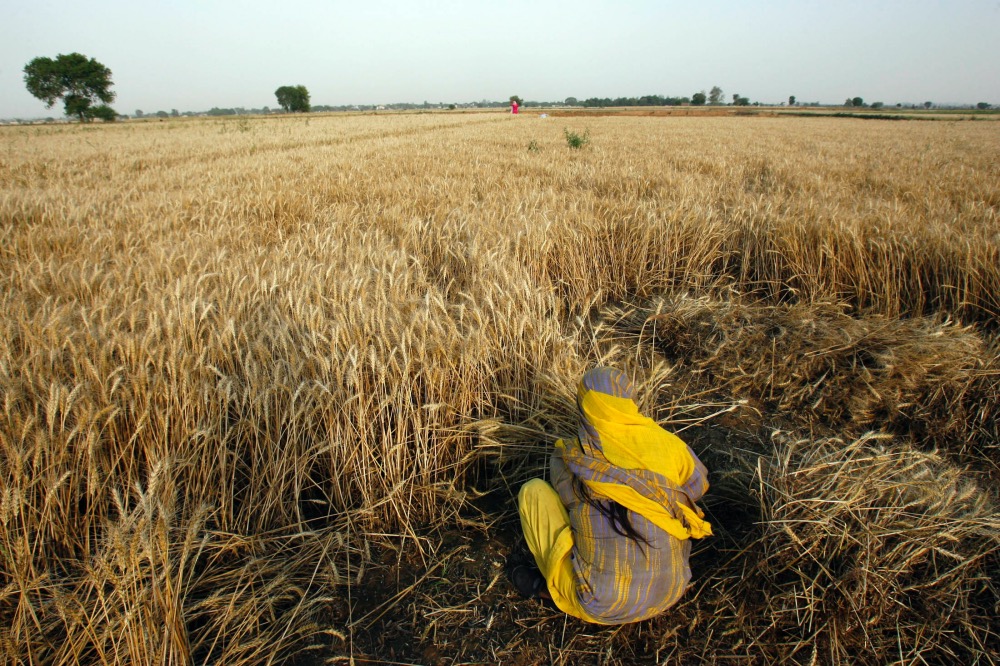Bangkok, Thailand
Thomson Reuters Foundation
From legislative loopholes to cultural norms, women worldwide still face barriers in accessing land, researchers said on Thursday, despite evidence that tenure rights can protect them from the worsening effects of climate change.
Women make up more than half the global population that relies almost exclusively on land and natural resources for a livelihood. Yet worldwide, only 14 per cent of agricultural landowners are women – with an even smaller share in Africa and East Asia.

Sunita, a labourer, harvests wheat on the outskirts of Saini village, about 55 kilometres east of New Delhi on 10th April, 2008. India’s wheat output in 2008 will exceed the government’s estimate and cross 75 million tonnes despite heavy unseasonal rains, Agriculture Minister Sharad Pawar said on Tuesday. REUTERS/Vijay Mathur
Even in countries that recognise women’s tenure rights, they often face practical and social barriers such as negative perceptions about their abilities, said a report from the World Resources Institute thinktank and Resource Equity, a non-profit.
“Women have deep historical knowledge of their community lands, and as the ones responsible for working the land, they know how to manage it, and ensure it stays productive,” said Celine Salcedo-La Vina, a research associate at WRI.
Yet policies generally focus on individual rights to household or agricultural land, said Salcedo-La Vina, adding that securing women’s access to communal resources would boost their food security and resilience to climate shocks including drought.
“When women have a seat at the table, their communities see benefits including…food security, investments in children’s health and education, and land management – all of which contribute to a community’s ability to be resilient to climate change.”
As countries bolster economies battered by the coronavirus pandemic, more communal resources may be privatised, hurting rural communities who do not have formal titles.
Securing women’s rights to these resources can help better protect them, said Salcedo-La Vina, who studied communities in Cameroon, Mexico, Indonesia, Nepal and Jordan, where women have these rights.
In Indonesia’s Riau province, an indigenous community with customary forest rights has provided more livelihood options for the youth and protected the forest from commercial plantations with formal titles for women, the report showed.
With legally and socially recognised land rights, women also have a greater say in household and community decision-making.
“Women can use communal lands for collective enterprises that benefit the entire community and provide a financial windfall that increases resilience and autonomy for everyone,” said Salcedo-La Vina.
“When this happens, people’s livelihoods are more secure, and therefore communities are less likely to open up to outside investors and are more empowered to say ‘no’ to them.”
There is a “moral necessity” to recognise the role that women play in managing land at the household and community level, said Daniel Hayward, a coordinator of the Mekong Land Research Forum at Chiang Mai University, who was not involved in the study.
“Women make effective managers of land, and legally empowering them to consolidate control and access can make them important leaders against outside threats – be they environmental, economic, or political,” he said.






